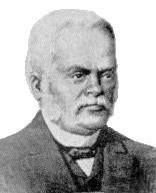May 1877 | |||||||||||
Presidential election | |||||||||||
| |||||||||||
| |||||||||||
 |
|---|
General elections were held in Liberia in 1877. Anthony W. Gardner of the True Whig Party was the only candidate in the presidential elections, [1] and was elected unopposed. [2] Gardner took office on 7 January 1878. The election began the century-long political dominance of the True Whig Party.
